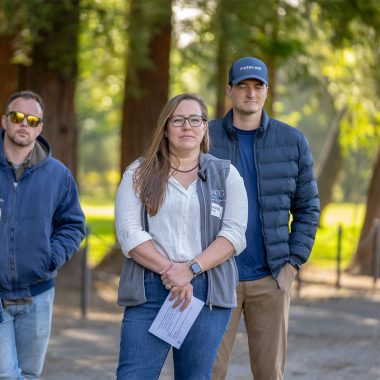Access to reliable, timely data has become a critical differentiator for growth, particularly for smaller organizations that often lack the resources of established corporations. When companies cannot see the full picture, they struggle to innovate . This gap between those who have access and those who do not has created a barrier to success and impact for early stage firms.
David Martin Riveros has built his career around addressing that gap. He saw firsthand how larger enterprises benefitted from restricting data access, leaving smaller players disadvantaged. That imbalance inspired him to chart a different path. “What I did with my company is to do the contrary to help small businesses to fight against big enterprises or at least to level the playing field,” he explains. For him, making data accessible is not only about efficiency, it is about fairness, giving early stage companies the tools to compete with resource-heavy incumbents.
Spotting Opportunities in Data Niches
While AI has automated many aspects of broad-market data collection, it has also opened gaps that traditional tools cannot yet fill. Riveros has identified one such space: low-latency scraping. In industries where information loses value within minutes, the ability to capture and use data almost instantly can create a decisive advantage. “At the moment, this is a very successful niche. For example, scraping up information from apps like Uber or intercity bus transportation. The prices of the buses on the day that the buses are departing can change depending on demand. So competitors need to scrape this quite fast.”
This focus on immediacy highlights an overlooked reality of data strategy: not all information holds its value equally. For sectors where decisions are time-sensitive, whether pricing, logistics, or job placements, speed can outweigh scope. Riveros’ approach emphasizes targeted solutions for these underserved but high-impact needs.
Navigating Overserved and Underserved Markets
Not every industry presents a viable opportunity for scraping. Riveros is deliberate about avoiding overserved areas where solutions are already abundant. “We’re not going through e-commerce anymore because it is too granular,” he explains. The sheer volume of domains makes it impractical and costly for clients. Similarly, he points to hospitality. “The hotel industry is a very served market as well. Business Intelligence platforms and aggregators cover 70% of the analytical requirements. Scraping is not directly purchased since more product ready tools have already developed dashboards and frontend-suited solutions.”
The opportunity, he argues, lies in the middle ground: industries where platforms exist but fail to meet client needs for speed and adaptability. “This place where platforms have not been able to serve them and where they need a low latency product for their solution is where we are focusing on,” he says. By positioning his services between excess and absence, Riveros has carved out a distinctive value proposition.
Adding Depth and Enrichment to Raw Data
For Riveros, the role of a data provider extends beyond delivery to understanding the client’s full process, from collection to application. “Initially a customer presents a data collection requirement and we try to go a step further. Once you understand what’s the purpose of the data, then you can go into the website you’re scraping and find the hiding features that the customer usually miss.” These hidden features, such as promotional tags embedded in retail sites, can transform raw data into actionable insights, often saving clients weeks of analysis. Riveros’ team enriches datasets by resolving inconsistencies across platforms.
“We deploy the raw data, but also an enriched data set which is presenting the data from multiple sources as a unified source,” he says. “We have become really good at it by using something called embeddings. Embeddings is the way in which AI looks at the world, how it understands it, like a version of your intuition inside the artificial intelligence.” For instance, the same hotel room may be described differently by different booking sites. Using math and embeddings, we identify matches across images, descriptions, and prices, presenting clients with unified datasets that streamline comparisons.
Levelling the Playing Field
For Riveros, the work is as much about impact as it is about innovation. “I think about these guys as the entrepreneurs and the startups that have a great idea and are very flexible and can move fast,” he explains. “On the other side, we have huge enterprises that are slow, that are big and are hard enemies to fight against. It’s David and Goliath, and web scraping is kind of a sling that you could use to beat the giant in the market.”

To learn more or connect with David Martin Riveros, follow him on LinkedIn , visit his website or the icebergdata.co site.








